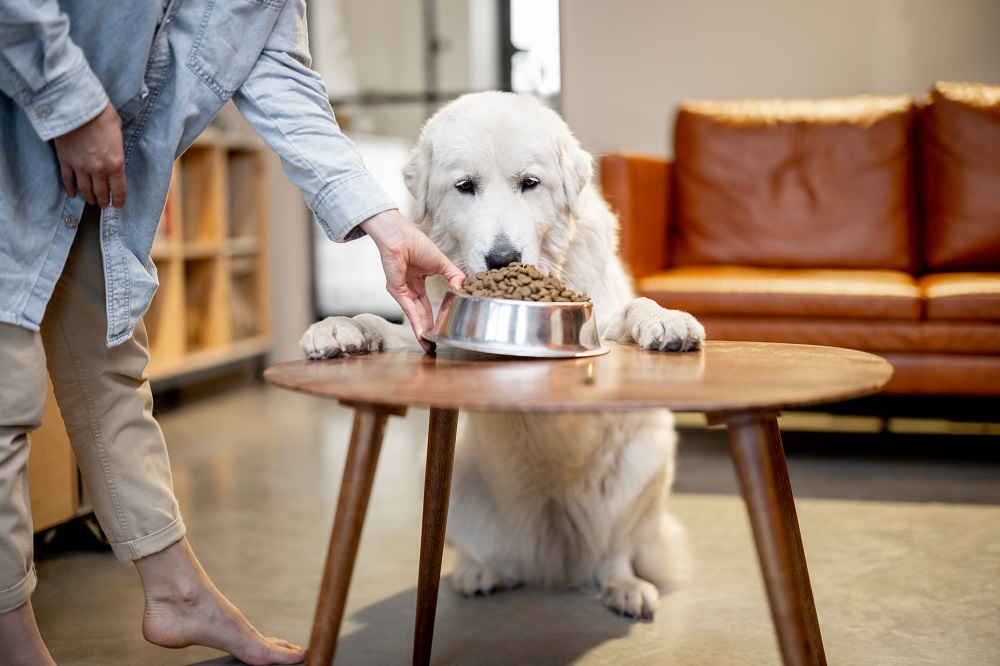We all know how it goes: you open your eyes in the morning, and the first thing you see is his adorable face. You feel lucky to see something this cute right after waking up. If you have a pet that wakes you up all the time, especially on the nights when you’re most exhausted, then this is the right article to read right now.
To be honest, I am a bit reluctant when it comes to handling your cat or dog waking you up at all hours of the night. As a pet owner, I always looked for ways to stop them from doing that. Well, this is what I found out:

Rule out any medical issues
This is, in my humble opinion, quite a wise starting point. As far as I’m concerned, skin allergies and tummy issues troubled my chihuahua for many hours during the night. He was oftentimes begging for relief at the crack of dawn, and by the time it finally clicked for us that we needed to sort out his medical issues, waking in the middle of the night was a newly learned behavior.
In retrospect, I would say that this is the first thing that needs to be done: get those medical issues in check. Watch for consistent scratching, borborygmus (loud stomach gurgling), frequent need for bathroom trips, and excessive water drinking. All of these are subtle signs that your pet needs to see a vet.
Wear your pet out
So, since medical issues are all off the table, and your cat or dog simply wakes you up for the fun of it, then maybe it’s time to wear your pet out. If you have a dog, take it on long walks before bedtime, or play with the cat for at least 30 minutes before turning in.
If you are away from home all day long, sometimes the very last thing you want after such an exhausting day is to play a game of fetch. However, this is important to any animal’s psyche and well-being.
Dogs and cats are often at home all day snoozing; when their owners come back, they are more than ready to play. Another fun but expensive tip: I have some close friends who swear by their doggie daycare. This way, the pup is efficiently worn out from tearing around with other dogs when their pet parent gets home from work.
Feed them a bit later in the night
If your little friend is waking you up in the middle of the night and starts begging for food, the best thing is to follow the vet’s advice and administer smaller meals throughout the day instead of one or two large ones. Feed them their last meal right before you go to bed, and hopefully, your fur kid will peacefully sleep through the night.
Consider having a late-night, mechanical feeder
If that didn’t work, consider a late-night mechanical feeder. It’s true that this option is not really for everyone, but it does work with little pets like mine, who need a proper snack schedule for tummy issues.
If your dog or cat begs you for food in the middle of the night, they might learn that the mechanical feeder is the one to bug, not you. Even if you have a Houdini on your hands, this might not be the best decision, since you might have to wake up to a broken mechanical feeder and a very satisfied pet.
For dogs, lock them out of the room and put them in a crate
This might be easier said than done, and in most cases, it does not work. As far as I can tell, locking my dog out of the room would only make things worse for both of us. Her stress and tummy issues would definitely increase, and in the end, it was worse than before.
But for some pets, it does work. Nevertheless, it’s also worth saying we did have some success with the crate, even right next to our bed. Even if it’s probably way too late for people with anti-crate dogs, for those thinking about becoming pet parents in the future, the crate is your friend, not your enemy. Establishing the right relationship between your new pet and their crate is quite important for a good sleep in the future.

Consider trying natural remedies (but ask your vet first)
No one says that natural supplements and calming aids are more and more popular for nothing. Even if they are not exactly a cure-all kind of thing, some natural remedies can definitely help promote relaxation and reduce nighttime wakefulness.
Some products, such as calming pheromone diffusers and lavender-scented sprays, as well as supplements like melatonin, CBD oil, and L-theanine, have been widely known to help pets settle down for the night.
However, and I really can’t stress this enough, you should always consult your veterinarian before initiating any treatment. At times, something as harmless as a herbal chew could greatly interact with existing medications or underlying health issues.
Stick to the same bedtime routine
It’s safe to say that one of the most underestimated tools in your sleep-survival kit is just a super consistent nighttime routine. The same rule applies to pets and human babies, and it is based on predictability.
If you feed, walk, play, and settle them at the same time every night, their internal clocks will ultimately adjust. This type of consistency helps train them to expect sleep, no playtime, food, or attention after a specific time.
At home, we call it “wind-down hour.” Around 8:30 PM, we would dim the lights, turn down the volume on the TV, and resist any kind of rambunctious play. My dog associates the calm atmosphere with bedtime.
You will see how, only in a couple of weeks, they won’t nudge or pace at midnight anymore. It’s true that some nights might be different, but the consistency definitely made the difference.
Avoid reinforcing this behavior
Here’s another hard truth: if you’re used to giving your pet what they want when they wake you up, well, you might as well expect to be woken up from now on. It’s the simple rule of reinforcement.
Even negative attention, such as yelling or pushing them off the bed, is more than enough to make the behavior stick. This was by far one of the hardest parts. When I heard those cute little paws on the hardwood floor at 3 am, my instinct was to pick him up, pet him, and talk softly to him to be quiet. But the more I engaged, the more it became part of her routine.
Making their sleeping environment cozy and independent
It’s quite tempting to let your pet share your bed (I mean, everybody is in for some cuddles). However, for light sleepers or pets who wake up a lot throughout the night, it might not be the best option.
A comfortable, warm, safe sleeping space of their own can truly make a difference. Just think of orthopedic beds, soft blankets, a super cozy crate, and a heated pad (this works even better for older pets with arthritis and anxiety.)
If you found this article useful, we also recommend checking: Your First Pet: The Ultimate Puppy & Kitten Adoption Guide












